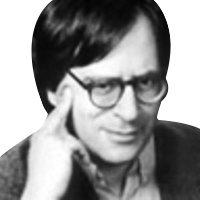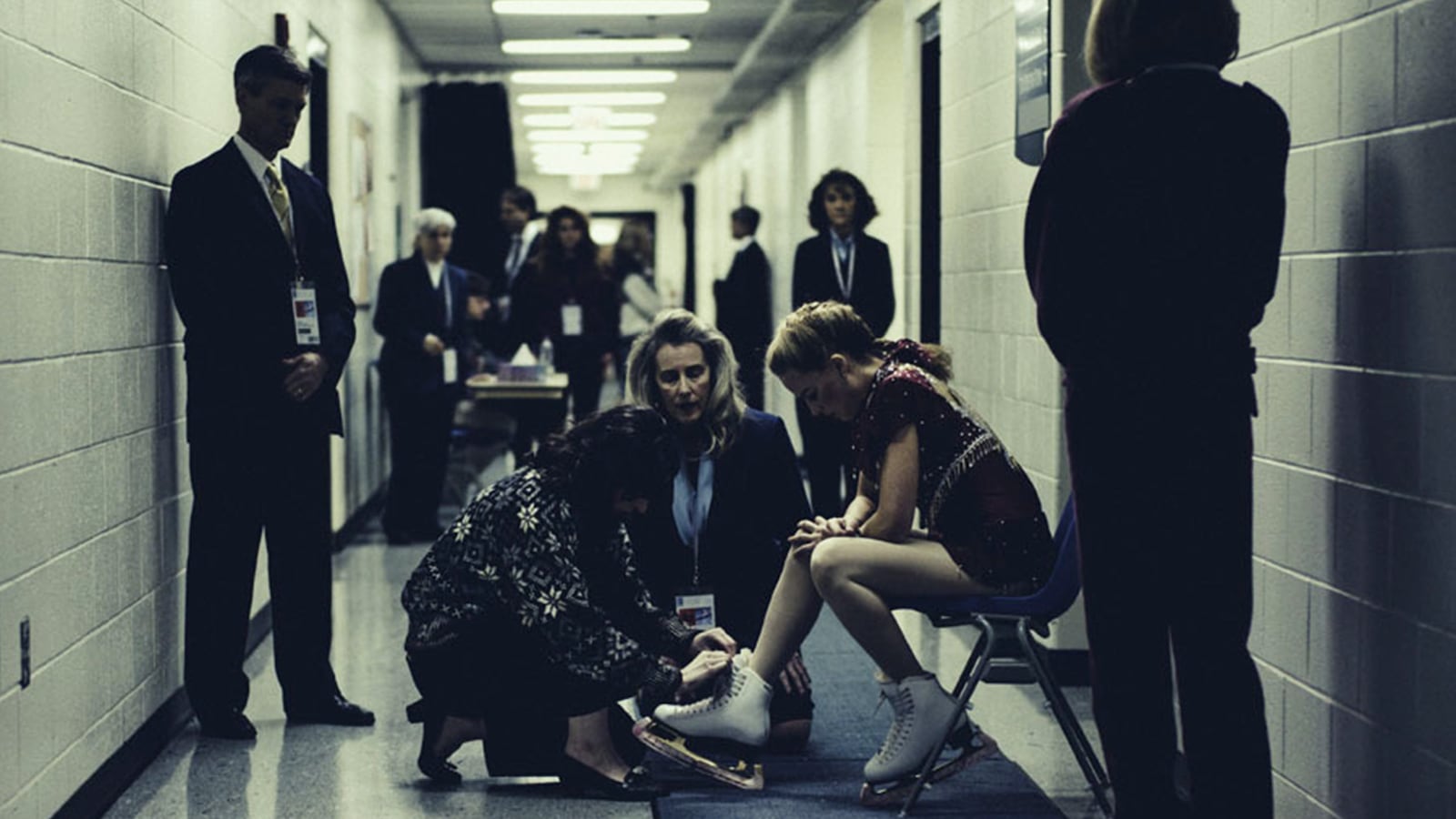Although Margot Robbie, the star of Craig Gillespie’s I, Tonya, (which premiered on Saturday at the Toronto International Film Festival) admits that she believed Tonya Harding was a fictional character before given the opportunity to play the role, the film itself points out that, during the 1990s, Harding was one of the most famous people in the world—second only to Bill Clinton. The fleeting, and often toxic, nature of fame is one of the main preoccupations of Gillespie’s mock-biopic, a movie that simulates the sensationalism of a tabloid documentary and mingles black humor with occasionally strained pathos.
Harding will always be notorious for her association with her husband Jeff Gillooly and body guard Shawn Eckardt’s plot, bungled by thuggish hit man Shane Stant, to break fellow skater Nancy Kerrigan’s leg—an effort to prevent Kerrigan from competing in the 1994 Winter Olympics in Lillehammer, Norway. While the inept Stant only managed to bruise Kerrigan, Harding became, as she observes in the film, a perpetual “punch line.”
Banned from the ranks of professional figure skating for life, Harding was something of a soft target for comedians during the ‘90s. A working-class athlete often stigmatized as “white trash,” Harding was saddled with a reputation as an unruly young woman—a skater perpetually contrasted with the well-mannered and perfectly coiffed Kerrigan. (In screenwriter Steven Rogers’ sardonic recounting, Robbie’s Harding describes Kerrigan as an “old-timey version of what a woman’s supposed to be.”) Harding, however culpable in her husband and bodyguard’s harebrained scheme, was also a victim of her cold, vindictive mother (played to foul-mouthed perfection by Allison Janney) and her abusive and sadistic husband.
In its own cockeyed fashion, I Tonya attempts to rehabilitate Harding’s tarnished reputation. Of course, Gillespie’s film is far from the first attempt to view Tonya Harding’s humiliation in a more empathetic light. As early as 1995, Cynthia Baughman’s academic anthology, Women on Ice: Feminist Essays on the Tonya Harding/Nancy Kerrigan Spectacle, tried to at least partially transform Harding’s image by arguing that, even if she couldn’t precisely be termed a feminist heroine, the scorn she received for her supposedly “unladylike” aggressiveness and uncouth behavior was generated by sexism. Even though Kerrigan’s background was also working class, Gillespie and Rogers emphasize Harding’s view of her rival as a pampered princess. “Nancy got hit one time and the whole word shits,” exclaims Tonya. Harding reported being raped by a local boy in Oregon as a teenager and, given her unfortunate choice of romantic partner, she understandably associates relationships with protracted abuse.
I, Tonya’s tongue-in-cheek approach—an introductory title proclaims that the story we’re about to experience is “irony free, wildly contradictory, and totally true”—aspires to lightly touch upon some of these feminist motifs and give Harding her due by emphasizing the absurdist elements of the Harding-Kerrigan brouhaha. For better or worse, any ostensible political earnestness is diluted by the fact that Janney steals the show as LaVona, Harding’s mother from hell. The skating equivalent of a ruthless stage mother, she takes credit for her daughter’s success and always has an acerbic quip ready to impart when challenged or threatened. When Harding recoils from one of her mother’s verbal assaults, LaVona replies, “Did Sonja Henie’s mother like her?” Niceness doesn’t cut any ice in the Harding family.
While Janney delivers an impeccably timed comic performance, Robbie’s attempt to deglamorize herself as Tonya is only partially successful. Enduring, in Gillespie’ estimation, 108 costume changes and displaying on screen the results of intensive skating training, Robbie clearly tried her best to immerse herself in the role. Robbie’s transition from a shimmering Hollywood blonde to the rough-around-the-edges Harding is less than seamless. Of course, Harding has seen the film and reportedly likes Robbie’s meticulous impersonation—perhaps because she appreciates the Australian actress’s slightly idealized portrayal, as well as Gillespie’s highly sympathetic take on her years of notoriety.
Near the beginning of I, Tonya, Harding’s coach Diane Rawlinson (Julianne Nicholson) more or less sums up the movie’s impetus by proclaiming that “some people loved Tonya” while others were revolted by her—“just like America.” This clumsy attempt to make Harding a quasi-metaphor for American flaws represents one way in which the film overplays its hand at times. Harding and her travails become stand-ins for the ever-burgeoning need to satisfy the public’s thirst for scandal and outrage, a trend that has only become more pronounced in 21st century. But the most compelling aspects of I, Tonya do not involve pop sociology but instead reside in Janney and Robbie’s success in making a half-forgotten scandal relevant in the era of Trump, an era where Tonya Harding and Nancy Kerrigan’s squabble seems monumentally inconsequential.





